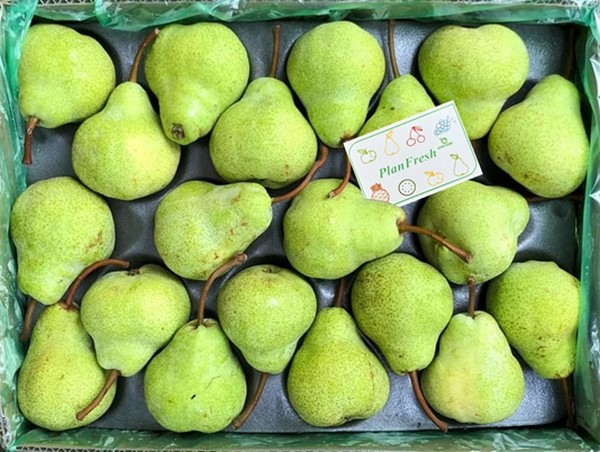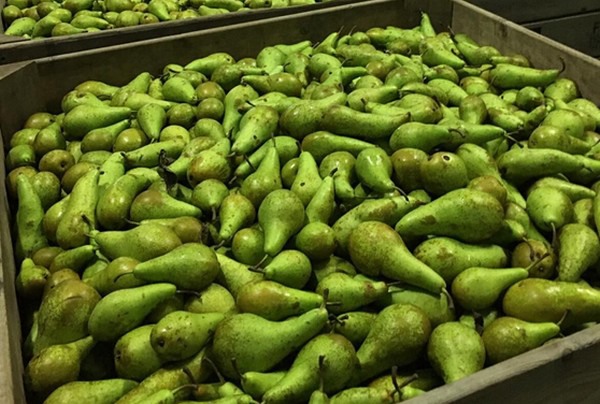Pears are respiratory fruits and their breathing process initiates physiological changes. When the pears ripen, the fruit becomes sensitive to temperature changes and the presence of ethylene. Under regular temperature conditions the ripe pears quickly produce large amounts of ethylene, which hastens the breathing process. Once peak ripeness has passed, the pears rapidly lose nutrition and moisture. The pears grow old and become inedible. That is why proper post-harvest treatment is important. Pears need to be kept at low temperatures immediately after the harvest.
Chesen BioChem is a specialized manufacturer of fresh-keeping products. Company spokesperson Cathy recently talked about their fresh-keeping product for pears: PlanFresh.

Cathy first introduced the working principles of PlanFresh. “This product can effectively inhibit post-harvest physiological changes including ethylene release and the intensity of the breathing process. PlanFresh helps curtail the impact of internal and external ethylene on the ripening process. This product also reduces the activity of various enzymes, such as phenol oxidase, cellulase, and peroxidase. PlanFresh slows down the aging process and so extends the shelf life of fresh pears. PlanFresh helps maintain product quality, flavor, firmness, and nutritional value in pears. In addition, PlanFresh can help avoid the occurrence of plant disease in storage.”
Cathy also talked about different storage requirements for different pear varieties. Early-season varieties are generally not entered into storage, but mid-season and late-season varieties are. Traditional Asian white pear varieties (Ya pears, Snow pears) endure storage quite well. European Bartlett pears do not endure storage well under regular temperatures. This pear is generally ripe within 10 days after harvesting, and then quickly decomposes.
Different pear varieties therefore have different requirements for storage duration, temperature, and humidity. Moreover, even in storage the pears require regular disinfection and ventilation, which involves a half hour of outside air circulation on a sunny day with low temperatures.
“Different pear varieties have different 1-MCP sensitivities. In general, Asian pears can be treated with 1-MCP products designed for apples. But European pears are more sensitive to 1-MCP products, so the concentration needs more regulation,” said Cathy.

“1-MCP is an excellent inhibitor of ethylene production and ethylene impact. Some fruits produce their own ethylene, and ethylene in the environment further stimulates the physiological processes that first ripen and then decompose fruit. Even in storage there is a certain amount of ethylene present in the environment. But ethylene can only stimulate physiological processes in fruits once the ethylene binds with receptors inside the cells.
"1-MCP also binds with ethylene receptors, but this connection does not stimulate the ripening process. So, if 1-MCP occupies the ethylene receptors before ethylene does, then the ripening process is effectively put on halt. 1-MCP delays the aging process and extends the shelf life of fruits,” said Cathy.
“We can even spray fruits and vegetables with 1-MCP to extend the harvest season, and so extend the shelf life as well. These 1-MCP products are easy to use, and they can be applied to large fields as well, to minimize the negative impact of external factors.”
Chesen is active in the retail market for pre-harvest and post-harvest agricultural chemicals. Chesen products are sold throughout China, and the company is working hard to register their products in overseas markets. “We are currently looking for strategic partners with an interest in distribution of PlanFresh products and other agricultural chemicals.”
The company's product are allowed to be sold on the Chinese market. International sales depends on national permits in individual markets. The company is actively looking for distributors in regions outside China.
For more information:
Cathy
Chesen BioChem
Tel.: +86 18133609421
E-mail: [email protected]
Website: www.chesenbio.com










